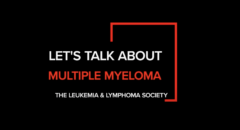
The holiday season is often a time when we are able to spend quality time together with loved ones and family members—some of whom we haven’t seen in years. If your family is like mine, spending an extensive amount of time together often lends itself to hours and hours of family stories, many of which start with, “Remember when…”
In fact, many of us will hear a plethora of stories—some funny, some serious, and some a combination of both, yet all tend to have a greater context embedded within them and that is they capture and archive our family’s history. As Black people, in particular, the preservation of our family history is paramount and it doesn’t have to be as complicated as one may think.
Just like the family photo below, that went viral, it’s important to know your family’s history. It’s like your story; if you don’t know the story, you’re susceptible to someone else writing it.

Oral History and the Black Community
Whether you are the decedent of slaves, a first-generation American, or an immigrant, there is a strong possibility that oral history has played a key role in your culture. From the neighborhood sage on the front porch to the West African griot, the ability to tell stories and to share them with others is often seen as an important and respected role.
For Blacks, in particular, laws once prevented us from learning how to read and write, thus the ability to memorize, recall, and retell stories allowed family histories to be passed down from one generation to the next.
In this sense, oral history can be just as, if not more, important than written history in some communities. For this reason, it is important that we serve as witness bearers for those who are no longer with us.
RELATED: Make Collecting Family Health History Part Of Your Thanksgiving Plans
Sharing Family History of Alzheimer’s and other diseases
Some diseases like Alzheimer’s disease are not only a personal health crisis, but a family concern. That is because when a family member is diagnosed with a disease, it increases the risk of other family members developing that disease as well.
For example, if a family member is diagnosed with Alzheimer’s, your risk increases by 30%. In short, family history raises the








